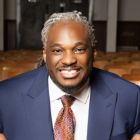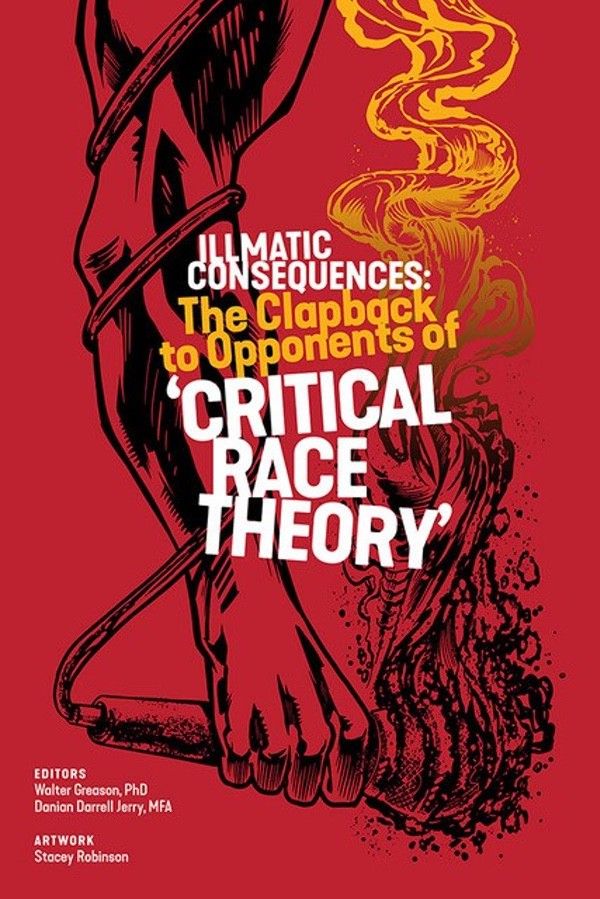Contributing Author/s

Sydney Freeman, Jr., Ph.D., FRHistS, CFD, COI, SOLC, EMC
Toward a Theory of VantaBlack Leadership and Liberation in Practice
Toward a Theory of VantaBlack Leadership and Liberation in Practice
“Do you have a fundamental love for Black people? Like fundamental. I’m not talking about Blackness. I’m not talking about an abstract philosophical idea. I’m talking about do you love [all Black people]. At the core. Do you hear me?! In all they forms. Folks who drink out of a crown royal bag. Do you love them? Do you love working class (Black folk)? And I’m not talking about abstract philosophical discourse, that’s important. I do that work. I’m talking about, but do you love them?”
Rev. Osagyefo Sekou 1
What should be the collective goal of Black people in America? Is it Black unity and self-determination/empowerment that leads to equal partnership and collaboration with other racial groups? Or is the goal aspiring to integration without regard to race? These are fundamental questions that we must ask ourselves in this current moment of antiBlack racism in the United States. Are we okay with just being freeish?2 Or are we willing to sacrifice towards sovereign freedom where we can truly engage in Black collective self-determination. The response to each of these questions will be informed by a person’s identity as it relates to class, gender, region of the country (urban or rural), familial and community support, educational attainment, and other factors. But it is important to wrestle with these questions if we are to move forward as a community.
When I answered those questions for myself it became important to think about how the answers inform the leadership that I support and follow. In this essay I advocate for a Black leadership that is focused on the freedom and liberation of Black people in the United States. I describe and coin such leadership as VantaBlack leadership. The nomenclature of vantablack3 comes from a pigment coating that absorbs 99.965 percent of light, which arguably makes it the blackest of all blacks. I have adopted this terminology as I argue for a Black leadership that is clearly and singularly focused on the advancement of our people. That does not mean that such leadership does not care about other people’s groups. It means that the lens in which they lead is one that centers the advancement and sovereign liberties of Black people.
1Sekou, Osagyefo. “Do You Truly Love Black Culture? Rev Sekou @revsekou sat with Host Tory Russell @vanguardtnt to discuss the genuine love and appreciation for black culture and communities while addressing societal challenges.” Instagram 2 October 2024, https://www.instagram.com/p/DAoUmddPk44/
2Hamilton, Meghan. “‘O’er the Land of the Free…ish.’” The Humanist, American Humanist Association,7 September 2016, thehumanist.com/news/national/oer-land-free-ish/.
3Threewitt, Cherise. “Is Vantablack Really the Blackest Black?” HowStuffWorks.com, System1 Property, 27 February 2024, https://science.howstuffworks.com/vantablack.htm
Calling for such leadership reminds me of the work of those such as Audley “Queen Mother” Moore,4 a prominent figure in the Black nationalist and civil rights movements. She was a founder of the Republic of New Africa (RNA)5 , a Black empowerment movement advocating for an independent Black nation in the Southeastern United States. The RNA proposed that Mississippi, Louisiana, Alabama, Georgia, and South Carolina would become its own separate nation-state. Which is different from journalist Charles Blow’s proposal in the book, the Devil You Know ,6 where he recommends that Black people who currently live in Northern and Western cities in the United States migrate to the South to wield more political power in those same states given that most Black Americans currently live in those states.
Said another way, is our goal to preserve and advance the United States project? Is our goal to advance the American empire? Or invest energy in a Black empowerment project that leads to racial sovereignty?
It is my position that the Black community needs to find ways that can lead to the collective sovereignty of Black people where we determine our own destiny. While some may champion a more incremental or moderate approach where we continue to work within the American system, and advocate for change within the empire and United States project. I believe that VantaBlack leaders need to arise with a focus on the transformation of our people. They must have a clear focus on ensuring all members of our community flourish and thrive holistically – mentally, spiritually, socially, and physically.
What does VantaBlack leadership look like in the age of Trump? Such leadership draws on the foundational pillars of Freeman’s Model of Black Transformation ,7 a 5-step approach that speaks to the aspirations of full and complete sovereignty and freedom of Black people around the globe in the future. The steps include: 1) Decolonization, 2) Abolition, 3) Revolution, 4) Liberation, and 5) Sovereignty.
4Blain, Keisha N. “Audley Moore, Black Women’s Activism, and Nationalist Politics.” African American Intellectual History Society, 25 Feb. 2019, www.aaihs.org/audley-moore-black-womens-activism-and-nationalist-politics/
5Greve, Eric. “Republic of New Africa (1968‑).” BlackPast.org, 10 Mar. 2012, blackpast.org/african-american-history/republic-new-africa-1968/
6Blow, Charles M. The Devil You Know: A Black Power Manifesto. Harper, an imprint of Harper Collins Publishers, 2021.
7Freeman, Sydney, Jr. “The Future of Black Scholars.” Diverse: Issues in Higher Education, 3 August 2021, www.diverseeducation.com/opinion/article/15113596/the-future-of-black-scholars
The first stage towards VantaBlack leadership is for aspiring Black leaders to decolonize their minds. This requires the difficult yet transformative work of unlearning many of the values instilled by systems that were never designed for our collective advancement—values such as excessive individualism, separation from our community, and conformity at the cost of authenticity. Black leaders must seek out and amplify the work of other Black thinkers, creators, and innovators. VantaBlack leaders don’t believe false ideas such as, white people’s water is wetter than Blacks, or white doctors are more skilled than Black doctors. They also don’t fall prey to the idea that Black excellence, individual attainment of status and/or resources must be divorced from Black power, collective strategic advancement of our community. They understand that Black excellence and power should be interconnected and mutually reinforcing. They should not be limited by and divided due to intra-ethnic/racial,8 gender, sexual orientation, and other differences.
The second stage is Abolition. Abolition means the courage to confront and dismantle practices, systems, and power structures that perpetuate injustice. VantaBlack leaders must acknowledge the various forms of degradation and inequity that our people have endured—often through processes that masquerade as fair and impartial. Leadership in this context means speaking up and advocating for policies and practices that protect and empower Black communities. It means dismantling educational, corporate, and governmental policies that harm our people and ensuring that our voices shape the spaces where decisions are made.
The third stage is Revolution. Revolution is not just resistance; it is the creation of something fundamentally new. VantaBlack leaders must boldly challenge the status quo and refuse to be confined by the limitations imposed upon us. Such leaders will advocate for the collective advancement of people of African descent but will respect the rights and decisions of leaders of Black-led sovereign nations. Increasing trade, travel, and other types of collaborative partnerships will be a staple of such leadership. It will not be unfamiliar for VantaBlack leaders to travel across the Caribbean, the African continent, the Americas, and the vast diaspora to gain a global perspective of Black issues. This will in turn help them to become advocates for international travel, seeking ways for Black diasporans to visit the mother continent.
VantaBlack leadership extends beyond boardrooms, classrooms, and offices—it flourishes in barbershops, churches, street corners, and on digital platforms. Knowledge is not meant to be hoarded; it is a tool for liberation and empowerment. VantaBlack leaders should leverage cutting-edge technology to build their own platforms, share their own narratives, and educate their own communities, reaching people wherever they are.
8Aiwuyor, Jessica Ann Mitchell. “Black Cross‑Cultural Conflicts: Understanding Diaspora Wars.” National Black Cultural Information Trust, Inc., n.d., nbcit.org/black-cross-cultural-conflicts-understanding-diaspora-wars/
The fourth stage is Liberation. Liberation is freedom from spiritual, psychological, and physical oppression. It requires us to reimagine what power, influence, and leadership look like. Historically, we have been taught to see progress only within the boundaries of institutions controlled by others. True liberation calls for VantaBlack leaders to be both glocal9 (thinking globally while impacting locally) and cosmic which is understanding our interconnectedness with the world and beyond. The future of Black leadership lies in embracing our creativity, our ancestral wisdom, and our role as visionaries shaping the course of humanity.
The final stage is Sovereignty. Sovereignty means self-determination. It means building, supporting, and sustaining Black-owned and operated institutions across every sector—from education and technology to finance, agriculture, and culture. We must reject the lie that someone else’s system or resources are inherently superior. Instead, we must invest our energy into enhancing and creating institutions designed with our people at the center. This vision extends beyond national borders, encompassing Africans across the continent, the Caribbean, and the entire diaspora. Through sovereignty, we reclaim control over our destiny.
VantaBlack leadership in the age of Trump is important not only because it draws upon both the best of theory and practice. But because it is focused on the future grounded in the knowledge of our collective memories and histories. VantaBlack leadership is vital to ensuring our collective well-being and advancement. And valuable because it’s steps can be implemented by anyone of African descent who is willing to sacrifice and dedicate your life for the advancement of Black people. Will you stand up and be a VantaBlack leader?
9“‘Glocal’ Thinking!” Leadership in Educational Contexts, 16 Nov. 2018, theleadershiptree.wordpress.com/glocal-thinking/
Disclaimer:
Article Tags
Related Title/s
Contributing Author/s




